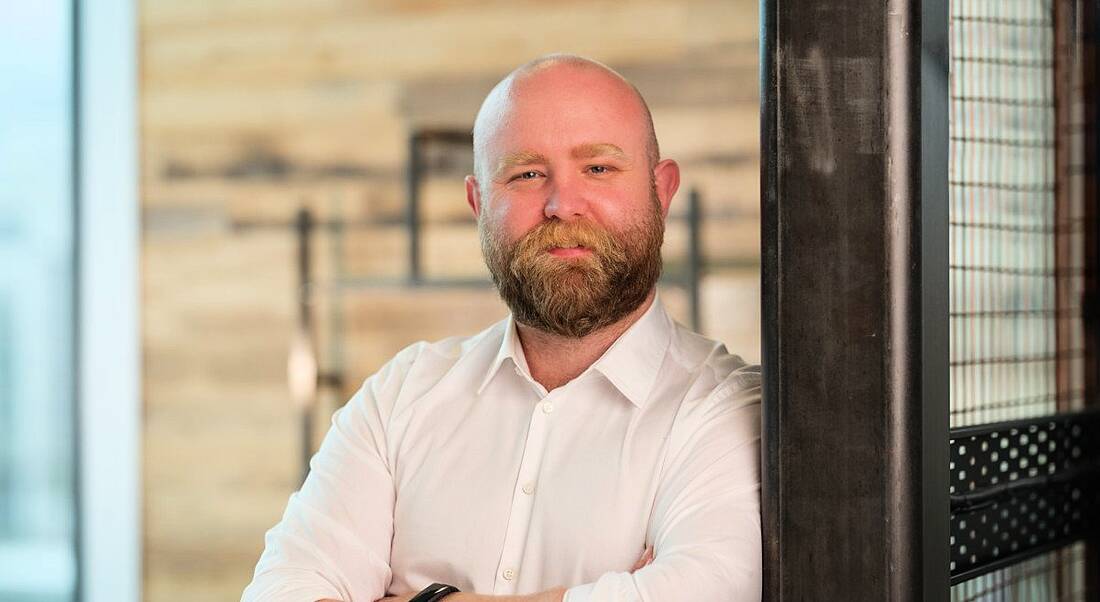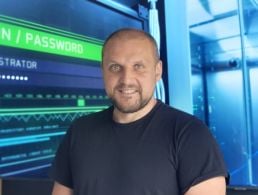Accenture’s Killian Walsh speaks to SiliconRepublic.com about the daily challenges in his role as a technical architecture manager.
Killian Walsh is a technical architecture manager at Accenture’s The Dock Innovation Hub in Dublin. Prior to his current role, Walsh completed a BA in psychology and worked in a number of roles such as a greenkeeper, a water meter reader in Australia and a library assistant, as well as almost joining the army.
After completing a MSc in computer science, his career pivoted towards roles in digital agencies in Dublin, before he arrived in his current role at Accenture in 2020.
‘Get an understanding of why design, UX, commercial and strategy people care about those things, it will make you a better engineer and make working together that much easier’
– KILLIAN WALSH
If there is such a thing, can you describe a typical day in the job?
I have two basic types of day: at home or in the office.
When at home I’m usually up by 7am. I get my son ready, bring him to creche and am at my desk with coffee and an arepa (courtesy of my Venezuelan mother-in-law) by 9am. Then it’s reviewing any emails or pings that came in since the previous day and checking the calendar and project board (Azure Devops) in advance of project stand-up at 9.45am. After that, it’s getting stuck in to project tasks or prepping and taking meetings. I wear a few hats besides my role as a technical architect for my project so some days can be very meeting heavy.
An ideal day would have any meetings clustered early in the morning, either side of lunch or last thing in the day so that I can have large blocks of time (two to three hours) in the middle to focus on a technical problem. Especially for writing code, I find that short blocks or interruptions have a huge negative impact on productivity.
Generally, I will finish around 5pm to 5.30pm and head for the creche again.
As Accenture is a global organisation, there may sometimes be necessary work calls outside my regular hours but thankfully these are rare.
Days in the office are generally all about people. I usually go in for days when we have events, workshops or presentations from the wider team and try to make the most of the opportunity to catch up and collaborate with people I don’t work with directly day-to-day.
What types of engineering project do you work on?
In The Dock, Accenture’s global R&D and innovation centre based on Hanover Quay, we work on projects across a range of industries that tend to be ambiguous and require an extensive cross-discipline collaboration. We have scope to tackle problems that might be too risky or uncertain for other areas of the business to work on. That means that from one project to the next, the problem area could shift significantly, and the technology involved could be completely different.
Some projects might last only a few weeks if it turns out they not a good fit for us; others could last a year or two as we develop them from a napkin idea all the way through to an asset with proven client value. We work closely with other teams in the wider business to bring our work to an agreed level of maturity before we hand over to them to bring it into full production.
What engineering skills do you use on a daily basis?
We spend all day solving problems. Either down in the detail of a block of code, higher up at a solution architecture level, or more abstractly when working with subject matter experts to understand industry processes and identify gaps, inefficiencies or opportunities where our skills could be leveraged to add value.
Often the most difficult problem to solve is how to effectively communicate technical concepts at the right level of detail for a given audience to ensure the necessary information is both accurate and understood. Building a rapport and relationship with our project stakeholders is not something I would typically have considered an engineering skill, but it’s one that helps a lot for the types of projects that we work on. Since it’s something that is less natural for me than some of my colleagues in other disciplines, it’s something I’m always trying to get better at.
What are the hardest parts of engineering, and how do you navigate them?
Avoiding distraction and switching off at the end of the day. I find it takes me a while at the start of any block of work to get into the headspace of the problem and start making progress towards a solution. A break in that flow for more than a couple of minutes can take me out of the ‘zone’ and cost me significant time getting back to where I was.
Conversely, since starting a family, I’ve had to work very hard at switching off from work at the end of the day to focus on my other responsibilities. It’s still difficult to step away from a problem mid-flow and not have it play on my mind the rest of the evening.
To combat both, I tend to leverage comments in my code to document my current approach to a solution before I write it. It helps me get back into it quicker when I return and often forms the first line of documentation for another reader or even future me!
What skills and tools are you using to communicate daily with your colleagues?
MS Teams for day-to-day chat and more real-time use. Email for longer and more formal communications. We use Azure Devops for task tracking on projects and often Mural for whiteboarding.
What do you enjoy most about working as an engineer?
The immense satisfaction of seeing my code working or my solution design having a tangible positive impact on the problem.
What advice would you give to someone who wants to work in engineering?
I had this exact question just last week! It depends on where you are starting from but assuming from zero, my suggestion was to start with free resources online and jump into JavaScript. It has a much lower barrier to entry than any other language I can think of and learning how to write it well will help build a foundation for understanding many other languages.
If someone has no previous exposure, I don’t see a value in spending money on courses initially. Find some free resources, play around, build a few things to get a feel for it and if you are still there a month or two later, then start to think about taking it more seriously. Figure out what industry or problems interest you and start building your skills to fit.
Also, nobody builds great software in isolation. Get an understanding of why design, UX, commercial and strategy people care about those things, it will make you a better engineer and make working together that much easier.
10 things you need to know direct to your inbox every weekday. Sign up for the Daily Brief, Silicon Republic’s digest of essential sci-tech news.




